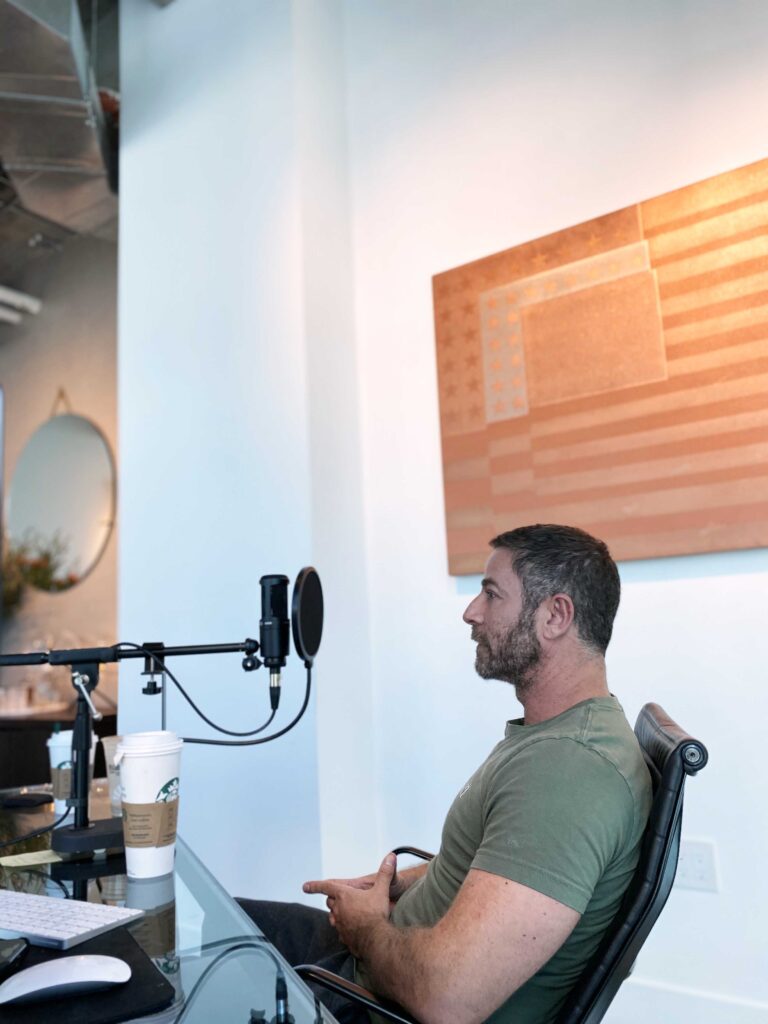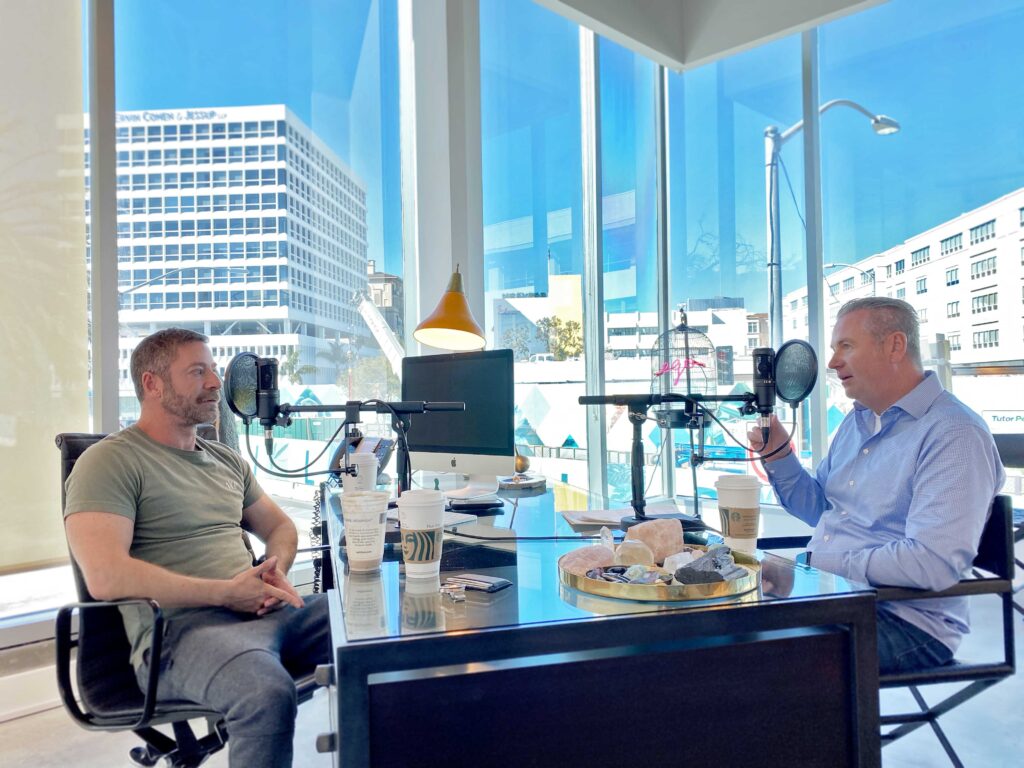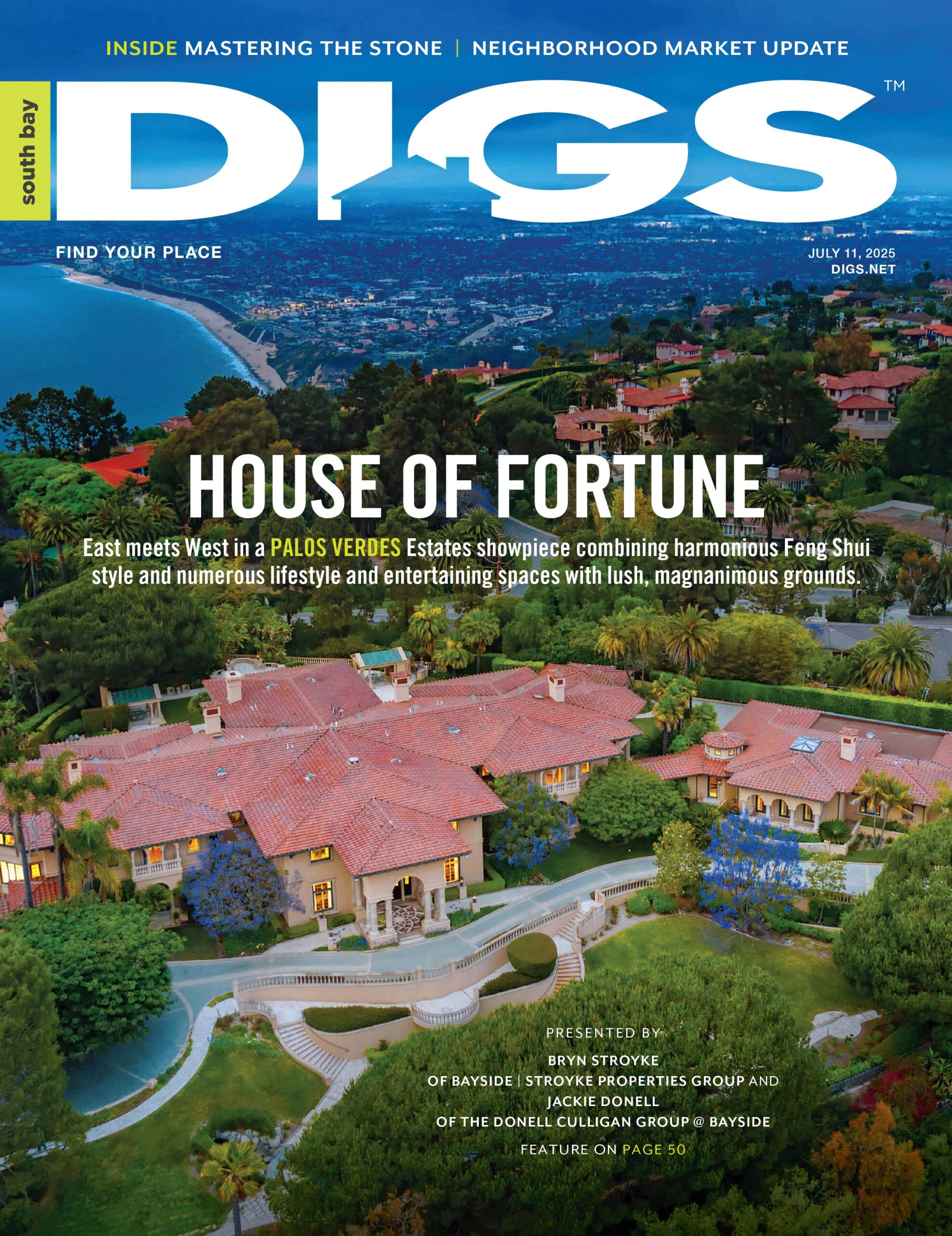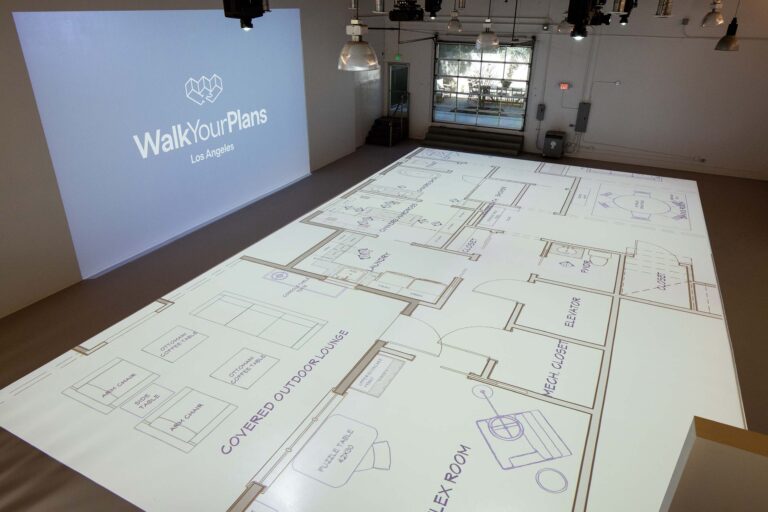Table of Contents

In this Episode
Aaron Kirman of The Aaron Kirman Group at Compass and host of CNBC’s Listing Impossible walks us through from the very beginning to the present. Growing up with a speech impediment to eventually representing Los Angeles’ most luxurious homes, and many of Hollywood‘s A-List celebrity clientele, Aaron Kirman tells you how being boldly honest with his sellers has been both a virtue and sometimes a curse. He describes that his team’s genius lies in their willingness to speak truth to money. Coming to you from Compass in Beverly Hills!
Top Quotes
“I always tell people the best way to win in our business is specialization. Specialize in something, a person, a type of house, a location, and then do it bigger and better.”
Tweet
“I saw an opportunity to tell people’s stories and there were so many stories to tell the people winning and losing, and some of the people that I would represent are the smartest people in the world and made the stupidest decisions in real estate. And I’m like, how does this billionaire that runs on fortune 500 company buy this house? And not see the intrinsic problems and what we deal with a lot of times, divorce, death, happiness, upgrades. It’s everything from beautiful to not, and I wanted to tell those stories, I wanted to educate the public, I wanted to show that there is a way to win in real estate, and there is a way to lose in real estate.”
Tweet
“I would rather tell you the way it is today and save you from a bad experience and losing hundreds of thousands, if not millions of dollars, rather than bullshitting you, telling you what you want to hear and having you and me lose later. I realize the more I told the truth, the more honest I was, the better I did, and so I just did it. I went in and I got hired left and right, telling people why their house is not good. But the end result of telling somebody houses not good is saying, ‘Hey, we know this is not good and why. So now let’s protect you and let’s try to figure out how you can win.'”
Tweet

Episode Resources
CNBC’s Listing Impossible with Aaron Kirman
CNBC’s Listing Impossible with Aaron Kirman premiers Wednesdays 6pm PST. Keep up with every episode on youtube or online at https://www.cnbc.com/listing-impossible/
Full Episode Transcript
Aaron Kirman: [00:00:00] The first 18 years of my career were all basically selling architectural houses. Frank Lloyd Wright’s, Richard Nuetra, Schindler, Lautner, all of the great and built an amazing Rolodex in that world, and it really rolled for me from there. When I shifted companies that hasn’t started going from what would have been like five to 18 we started doing 30 to a hundred
Warren Dow: [00:00:42] Welcome to DIGS Influencer Podcast, the Titans of Real Estate. The show that provides direct access to the real estate industry’s top movers and shakers is they share invaluable insight on how to best navigate and succeed in any market. I’m your host, Warren Dow, founder and CEO of m3 media and Publisher of DIGS magazine.
You may know Aaron Kirman as a reality TV personality, but he’s much more than that. In this episode, we’ll hear the origin story of a true legend in real estate. You’re going to absolutely love this episode. Enjoy.
Warren Dow: [00:01:23] Our next guest is a bonafide real estate superstar with lifetime sales of over $6 billion dollars, who’s amassed a who’s-who Rolodex and international network that includes billionaires, celebrities, high profile CEOs, royalty, and major foreign investors. He also has his own TV show called Listing Impossible, which just launched an airs every Wednesday nationally on CNBC.
Welcome to the show, Aaron Kirman.
Aaron Kirman: [00:01:51] Thank you so much for having me.
Warren Dow: [00:01:53] You’re welcome. It’s great. We have so much to talk about. Aaron. Before we jump into real estate, which we’re going to get into. Let’s talk about your early childhood years. What was it like? You grew up in the Valley, right, and instead
Aaron Kirman: [00:02:04] I grew up in the Valley.
I had amazing parents and super grateful for my life, but I think I had a little bit of a hard childhood in that I was very dyslexic. I couldn’t read and write. I had a really bad speech impediment, so I couldn’t say my own name. I couldn’t say the letter R, and so that was really challenging for me. And on top of that, I was gay, so I had a lot of challenges that I felt were working against me psychologically that made my childhood difficult, but still good.
Warren Dow: [00:02:32] Good deal. So what, and what is your, like what did your parents do for work?
Aaron Kirman: [00:02:35] My dad was in the trucking business and my mom was a school teacher. Okay. So pretty modest upbringing.
Warren Dow: [00:02:40] So how did you, early on when you were still dealing with your speech impediment, what helped you get over that and how’d you, how’d you resolve that?
Aaron Kirman: [00:02:47] I would say it was honestly my parents. Being my mom was a schoolteacher, she spent hundreds of hours helping me to read and write. I went to speech therapy probably three or four times a week. And so. You know, we worked through the challenges that I had and eventually overcame them. I mean, I’m still dyslexic.
I still see numbers backwards. I still drive myself crazy, but I could at least talk and talking is the most important part of sales, or actually, not really, but I can talk without that impediment.
Warren Dow: [00:03:18] Well, it’s a testament to your resilience and your persistence, which has carried your career and brought you almost to where you are today.
Just with that early struggle seemed to help you later. Would you agree?
Aaron Kirman: [00:03:33] You look back at that and you know, struggles are never great, but I would say yes. I looked back at that struggle and I’m super grateful for it because when I was a kid, I didn’t relate well to people. I never found my, I call them my people, but I was always very sensitive and I think what happened was I was able to transition into the role I am today.
Because I am so good at reading people and understanding people and understanding what they’re about that it’s made me what I, I mean, I don’t want to sound like I think I’m a master salesman, but I am a master salesman because I’m so intuitive
Warren Dow: [00:04:11] with what is your intuition and your other senses have been highlighted or enhanced, right?
Aaron Kirman: [00:04:17] Yeah. And so like, I feel like good salesmanship is understanding what people want. What people need and just understanding who they are. And there’s no formula in sales for that. You know, a lot of people subscribe to coaching and scripts and stuff like that, and I think that can absolutely help, but I think the best way to sell is to be intuitive and really understand the other person.
Warren Dow: [00:04:41] Yeah, I totally agree. In a weird way, because you are probably scared of putting yourself out there and speaking when you were struggling with your speech impediment stuff. It probably made you a great listener too, right? Maybe in a weird way, cause you’re like, Hey, maybe instead of me starting and talking, I’ll listen more and be more thoughtful and you know what I mean?
Aaron Kirman: [00:05:01] I think I would absolutely agree with that. And I would say. Listening is the most important part of what we do, and really then understanding, taking that and putting it to use. And I think that that’s what’s really important. And I would say that without that childhood background, I’m not sure that I would be where I am today because I was always afraid of failure.
I was always afraid of talking. I’ve, I couldn’t read, I couldn’t write, so I had to prove to myself. That I could do it, but it wasn’t until I got out of the academic world that I was able to do that because in the academic world, I was, for all intensive purposes, almost a failure because I needed to cheat on every test.
I couldn’t pass them by myself, but it was once I got into sales that I was able to say, okay, I’m my own man. I now can take my skillset and make it work.
Warren Dow: [00:05:55] Oh, cool. And you know what’s funny? I was super shy as a kid, like painfully shy, and I have spent my career in sales. It’s like go figure.
Aaron Kirman: [00:06:04] Right. That’s so funny.
It’s a funny, well, I think salesmanship and education and academia are two different things. There were people, and I hate to say this, but it’s just true. There were people that I cheated off of in high school and elementary school that in the past have worked for me and they were the people that I was copying off.
Cause it’s just, there’s two different skill sets.
Warren Dow: [00:06:28] Yeah. Okay. So you graduated with a business communications degree from USC. Yep. But I heard that you didn’t get in at first and you had to write a letter again. Example. So tell us about that.
Aaron Kirman: [00:06:38] Yeah. So. I didn’t get into USC and I didn’t get into any college and I was desperate to get out of my house cause at the time I just felt like I needed my independence.
I was at the time fighting with my dad and so I really wanted to just get out of school. And so when I got that letter of rejection, I wasn’t the best writer. But I think I must have written a great letter because I was emotional and I told them why I feel like I deserve to get in and why that letter rejection was wrong.
And sure enough, I got a call from the Dean’s office and they said, Hey, we’re not promising anything, but why don’t you come in and meet with us? And we’ll go from there. And I met with the Dean of admission and two days later I got a letter of acceptance, a conditional letter of acceptance, but acceptance.
Warren Dow: [00:07:27] That’s great. And no, I think a running theme in your life and your career, Aaron, is authenticity. And I think that’s another example of just you just being yourself. You’re just like, Hey, let me. Let me write a letter from my heart and not pitch or sell it. Just let me explain.
Aaron Kirman: [00:07:44] I think that was an example of authenticity.
There are moments when I wasn’t authentic. When I started in sales, there were a lot of things that I believe I was not authentic about.
Warren Dow: [00:07:54] Give me an example.
Aaron Kirman: [00:07:55] You know, when you’re new in the business, you look at everybody and you think everyone’s bigger and better than you, and so you start to judge yourself and so you try to be somebody you’re not.
And I was guilty of that for many years of my career, I think because I wasn’t running on my authentic, you know, you meet a seller and they want too much for your house, and you’re like, yeah, it’s a beautiful house. We can, let’s do it. You know, you are, you’re trying to prove something to other people. And there were times I was authentic and there were times I wasn’t.
But the older I got, the more I realized I needed to be authentic to myself. And people love authenticity, whether it’s good or bad. And I was tell my team, be as authentic as you can and you don’t even have to curate that authenticity. You know? If you, and this sounds really bad, if you, I mean, well, this sounds good.
If you go to church or temple and that’s your religion and those are your people and that’s authentic to you. That’s great. And on the flip side, if you like to party and go to a club, and that’s who your people are. That is okay too.
Warren Dow: [00:08:52] Yeah.
Aaron Kirman: [00:08:52] because there’s both ways to make money and it depends on through somebody else.
Warren Dow: [00:08:55] Yeah. I like that. Well said. Well said. So when did you start actually selling real estate?
Aaron Kirman: [00:09:01] So I started really young. It’s the only job I’ve ever had. It’s the only job I’ve ever known, and I believe I started when I was like 17
Warren Dow: [00:09:07] wow.
Aaron Kirman: [00:09:08] Yeah, so I was an intern.
Warren Dow: [00:09:10] Okay, and where was that
Aaron Kirman: [00:09:12] at the time? It was a company called DBL, which is no longer in business.
It was still this other mediums, but it started at DBL. Funny fact, the owner of DBL called me about two weeks ago to do something, and when he called me and said, you were the first. Guy in real estate that ever fired me cause he fired me from my first intern position and he said, wow, that was the worst fire I ever did.
Of course I was 17 and I had no background. I couldn’t keep a job even in real estate as an intern because I would always make mistakes and my dyslexia. And once that happened I realized I just needed to be my own boss. I needed to take control of my life and I got my license and the rest of the sort of history.
Warren Dow: [00:09:51] So was that actually before you went to SC or right on the same time?
Aaron Kirman: [00:09:54] It was right around the same time
Warren Dow: [00:09:56] you were moonlighting and real estate
Aaron Kirman: [00:09:57] I was moonlighting in real estate. I was an intern actually at USC during college, and then I actually got my license. During college as well. Okay.
Warren Dow: [00:10:06] Oh, Oh, that’s cool.
So tell us about your first sale. Like your first closed escrow. Hey, I got a paycheck.
Aaron Kirman: [00:10:13] So it was a really interesting house. It had a really traditional, it was in receipt actually, or it was actually an Encino, but North of the board. It had this old 1920s house, and then it had this very modern edition. It was a very hard sale.
It was like selling two houses in one, and at the time it was quite expensive for that neighborhood though. It was like. 200,000 to 280 something like that. It was funny, you know, agents celebrate their selves and even back then it was a sale. And I remember selling it and going, what’s next? What’s next?
Like even to this day, for better or for worse, I’m not a big celebrate—I don’t celebrate sales because for us, in our business. You’re only as good as your last sale and you have to look to your next sale to continue rolling. And so for me, it’s always about that future and how we could leverage that sell into something else rather than celebrating it.
If for me, it’s always about the leverage
Warren Dow: [00:11:04] Well in sales and think about it. That’s like you’re out of business after every sale. You’ve got to go on to the next and do the next
Aaron Kirman: [00:11:10] Making commissions is great. And we love the money that comes from a sale, but every time I sell a house… This sounds really bizarre…I feel a loss because I just lost a product that I don’t have that can continue to grow my business. And so while I feel gratitude for making the money that of the sale and why we all obviously want to sell everything. There is a little bit of me that goes, “Oh my God, I just lost my inventory. I now I need to replace it again.”
Warren Dow: [00:11:40] That’s interesting, and we’re going to come back to this because this is a marketing thing that I want to talk about later, which I think you’ve got a handle on it like no other in terms of. How you view inventory and the context in which you put it in with respect to marketing. Want to go back to your first year real estate though, cause it’s curious, it’s like then and now, right?
How many sales did you do in your first year or what? What was your volume and your first year.
Aaron Kirman: [00:12:01] I honestly can’t remember. I don’t have the answer.
Warren Dow: [00:12:04] Do you remember the homes was like five homes? Was
it two homes?
Aaron Kirman: [00:12:06] You know, I remember the houses and thank God, it rolled for me pretty quick. I sold three or $250,000 house and they give a 280,000 they bought a $400,000 house a minute later.
I sold their house and then as time rolled on, it was really interesting. I remember I worked at a very small company. It was called the Monster DZ and Dell, and it wasn’t like an architectural firm. Very specialized and very small. And the guy called me and he said, I want to buy an Neutra. And said, “great, let’s find one.”
And I hung up with him and I was like, “what is a Neutra?” I had no idea like this was before. It wasn’t as technology, so I had to figure out what a Neutra was, and I was like, “Oh, it’s an architect.” So this particular guy came from San Francisco to go look at houses. There was no Neutra, so I showed him these modern houses.
I got lost. It was before Google maps, it was literally before cell phones. We didn’t have these smartphones—
Warren Dow: Thomas guide
Aaron Kirman: [00:13:00] —and I can’t read maps. So you know where that left us. And I remember, these agents were picking us up from gas stations, taking us to show the listings, and I thought, “Oh God, this guy’s going to hate me forever.”
And he did. He didn’t return my phone call. I didn’t find him a house. And finally I found a Neutra and I called him. I said, listen, I found… And it was about 700 mean it was $800,000 which at that time wasn’t a small deal. And I called him, I said, “look, I found a Neutra.
He goes, “I don’t trust a word you say” like you couldn’t even, I said, “just trust me. Fly down. I found your house.”
And sure enough. Sold them this house. And that was when it really started to roll for me because that guy was in art and fashion. And he started to introduce me to a lot of people in that world. And I started being known as the guy that sold cool houses.
Warren Dow: [00:13:44] Yeah. And you, and what’s cool about that is you also position yourself as someone with like who understands architecture and significant notable architecture. And in since then, you’ve represented like Franklin Lloyd Wright, the Ennis House, the Kauffman Residence. Was that the one you’re talking about or is that a different house?
Aaron Kirman: [00:14:03] for the first…
So I feel like, so I’ve been in business for about 25 years. The first 18 years of my career were all basically selling architectural houses.
Warren Dow: [00:14:14] That was your thing?
Aaron Kirman: [00:14:15] And so I was lucky enough to sell the most significant houses in the world. Frank Lloyd Wright, Richard Neutra, Schindler, Lautner. All of the greats and some in the middle and newer contemporary homes, and I built an amazing Rolodex in that world and it was really based on some art, some fashion, some celebrity, and it really rolled for me from there.
What was funny was when I shifted companies, there was a year and I could get, we could get into this. I was very unhappy, my business wasn’t doing great and I felt like I needed a shift and. It just so happened the company I ended up going to, my title of executive director, architectural division was taken, and so the guy goes, well, I could give you president of estates.
So it was a random fluke, and I was like, Oh, I’ll take it. And it was at that moment that I shifted from those architectures, which I still do, but to the really big boys stuff. The houses started going from what would have been like five to 18 we started doing 30 to a hundred
Warren Dow: [00:15:14] wow, so that’s interesting.
How that just the word in the title. Into like, okay, I need to be open to this or do these now. It’s crazy, right? How that works.
Aaron Kirman: [00:15:25] It’s funny how the universe works where you know, you open something up and it opens. But when I got that, I remember I got that title and I went from a very established company to a company that was known but not known as a luxury brand, and they wanted me to build that luxury brand.
That was one of the reasons why we had created what we created. And I ran their division at the time at the estate division. And so the day I went, I called some contacts, and I remember launching with a $50 million house, a $60 million house, and all of a sudden that was what my focus was at this moment in time.
Aaron Kirman: [00:16:00] It was a change that shifted. And you know, my passion is, I still love architecture, but we now also love those. Those big boys estates that are world class.
Warren Dow: [00:16:10] Oh yeah. For sure. That gets you TV shows.
Aaron Kirman: [00:16:14] You know? I don’t know. You know what’s funny? So the premise of our show isn’t that.
Warren Dow: [00:16:17] No, I know. I’m kidding. But like, you know, but the world loves.
The public has an insatiable appetite for celebrity and celebrity homes, like mega home. They just can’t get enough cause they get to go inside.
Aaron Kirman: [00:16:27] Yeah. It’s funny, even in economies that are turning down, sometimes we wonder if that’s what the world wants because it seems like people are sizing down, but the beauty of that is it’s not just getting behind doors that you can see or gates you can’t see. But there’s an aspirational side to it because if you look at a guy like me, I’m a guy whose dad was in the trucking business and his mom was a school teacher and we didn’t live that life. I still don’t buy those houses. I can’t afford those myself, but I sell them and I’m in that world and it just shows you that life can really change for the better or worse. And I think that people love that aspiration, and I think that what we appreciate is being able to show that.
Warren Dow: [00:17:07] So I want to go back to architecture on the Pierre Koenig Case Study House 21 which happened to be on the cover of DIGS magazine, which was really cool.
Aaron Kirman: [00:17:16] I sold that.
I sold that three times.
Warren Dow: [00:17:17] Really?
Aaron Kirman: [00:17:18] Yes.
Warren Dow: [00:17:20] Well the last time you sold it for a record, right? In terms of price per square foot?
Aaron Kirman: [00:17:23] I sold it for a record three times in a row.
Warren Dow: [00:17:24] Oh you did?
Aaron Kirman: [00:17:24] Yeah.
Warren Dow: [00:17:25] Okay. So here’s my question cause I’m sort of fascinated with that side of the business to notable architecture just because it’s like for me, I’m a musician and it’s like going back to the 60s or like the British invasion, like, like they don’t make that stuff anymore.
It’s a whole different world in the scene and vibe kind of thing. I’m going to throw you a little curve. Like if someone, if you had a buyer lined up to buy Case Study 21. And they said, we want to pay full price, whatever, and our plans are to tear this thing down and build a mansion. Yeah. How do you, knowing the significance of that in the seller. How do you guys—
Aaron Kirman: [00:17:57] I would fight tooth and nail to make sure that that is not the buyer for that house, but logistically it wouldn’t be the buyer for that house because
Warren Dow: [00:18:05] They wouldn’t be interested?
Aaron Kirman: [00:18:07] well, if you look at it, Case Study 21 is a world-class piece of art.
It’s almost not a house because if you look at the neighborhood and the surrounding neighborhoods, the houses go for anywhere between 700,000 and 1,100,000 every time that hasn’t been for sale. It’s been double and triple and quadruple the value of those neighborhood houses. So nobody’s going to want to pay four times the price for something and an area that isn’t.
So the really to those buyers are really buying it for that intrinsic architecture. Unless there’s something weird at play.
Warren Dow: [00:18:35] Got it. Cause these homes, these homes are really like art pieces. Yeah. I mean they’re like museums and themselves just in terms of they’re amazing.
Aaron Kirman: [00:18:42] Oh my God. And you look at the greats from the past and you look at the greats of today, and I still say the greats of today counts.
Copy. No, they can’t. Well they try to.
Warren Dow: [00:18:50] They try, but
Aaron Kirman: [00:18:51] they still don’t make the greats of the past. And there’s such a limited number of them that protectionism is really important for us. And the great thing about it is there’s a lot of people that love it. Want it and want to collect it and understand its value and its historic value.
And those are our buyers. I just sold Case Study 16 and we put it on the market and we had, we had a list of buyers that wanted it. We had 10 buyers in a row.
Warren Dow: [00:19:18] Wow, so there’s a lot of demand. Do you think it’s hard, like a lot of agents don’t focus? Well, they don’t either. Maybe they’re focused on it. They don’t get the inventory, they don’t get the listings.
But because it’s such a narrow niche market, you think it’s harder to navigate that niche as an agent. Like if you’re gonna, if you’re gonna try to get into, I want to sell Franklin Lloyd Wrights and the modernist gems that are far and few between, does that take a special study or experience or
Aaron Kirman: [00:19:43] it does in the sense that I have 25 years of a database of buyers that want those houses.
So I can sell those houses before I even list them because we already know who to go to. And even from a marketing and advertising standpoint, it’s different. You need to treat it like a piece of art, not like a house. And so it’s a real niche market, but, but estates are the same way too. When you start to get niche in our business…
If you look at our business, and it’s a very funky moment because the people at the top of the game own a lot of the business. And I think there’s something like 1.4 million real estate agents in the United States, and there’s something like 2.8 million transactions. And so. You know, I always tell people the best way to win in our business is specialization.
Specialize in something, a person, a type of house, a location, and then do it bigger and better. That architecture niche is one of them. But you know, it’s a tough game because there are people that have specialized in, in 25 years and you’re going to compete against those people on same with the estate business.
And so. You know, if you’re going to want to focus on that niche, I’d always say partner with somebody that already has it.
Warren Dow: [00:20:56] Yeah, that’s a good point. Because it’s kind of like, fine. Art pricing is so relative, because forget comps. Forget about his sale history. Forget about price per square foot. Forget about location.
Forget it’s, it’s a piece of art. It’s a piece of art, piece of art. So it’s like it’s a Southeby’s auction kind of thing. Like, Hey, price is what someone’s willing to pay.
Aaron Kirman: [00:21:16] Oh, it’s good. And that’s what makes real estate hard in general. Especially, you know, not in all markets and certain markets in LA, it’s tough because the houses are so unique that the comps sometimes go out the door, you know what I mean?
And we always know it only takes one person to buy a house. And so we have to weigh the scale of what’s the highest price we can yet still find that one or two and not be so far over market value that the market’s gonna not going to help us sell those homes.
Warren Dow: [00:21:45] So speaking of comps and prices, you’re probably in the Guinness book of records if they put, put the placement in for your billion dollar listing known as the mountain in Beverly Hills, are you okay to talk about that for a minute? That whole, okay.
Aaron Kirman: [00:21:58] Cause it’s, I mean, I can’t talk about certain things, but I’m happy to.
Warren Dow: [00:21:59] Sure, sure, sure. Well, it’s just a, it’s a fascinating story, wild story, because you originally listed it for $1 billion. It ended up selling at a foreclosure auction in Pomona, sort of quietly for $100,000.
Aaron Kirman: [00:22:12] yeah, but that’s not true.
Warren Dow: [00:22:13] It’s not, okay. So what the story here, that’s what I want to ask you to tell us the story.
Aaron Kirman: [00:22:17] The only person that was able to buy that property was a person, the debtor, the person that had lent the money, and that was the accused foundation got back.
So it wasn’t like it just sold for a hundred.
Warren Dow: [00:22:30] Got better was two. It was 200 million, right?
Aaron Kirman: [00:22:33] Correct. Okay. So there was debt owed on it.
Warren Dow: [00:22:34] So in essence, it was 200 million in sale? Yeah, I was gonna say, cause it even, that’s a steal
Aaron Kirman: [00:22:40] look, they were able to take it, but no one else would have been able to do it.
The only reason they were able to do it, it’s cause that they had money—
Warren Dow: [00:22:46] it was a legal. Just it was, it was just, okay. Got it
Aaron Kirman: [00:22:49] So the way that the media had portrayed that situation. Was was not valid. Fake news.
Warren Dow: [00:22:55] 100% fake news.
Aaron Kirman: [00:22:56] 100%
Warren Dow: [00:22:57] All right. Well, we cleared it up today, Aaron, which was really cool.
Aaron Kirman: [00:23:00] And in real estate, like anything else, you win some and loose some, that’s life.
And you know, when we lose big ones it hurts. But you know, all we can do is pick our head up and move on and move to the next big thing.
Warren Dow: [00:23:11] So your business, you’ve done amazing things in your career and one of which is like. Here we are in Beverly Hills. We’re on Wilshire Boulevard. You started in the Valley.
Okay. You’ve got the majority of the mega big, big, big time listings, or are in this vicinity, but you’ve transcended this little area in LA and you’re global. You’re international. You have an office in China, right?
Aaron Kirman: [00:23:30] We have partnerships in China.
Warren Dow: [00:23:32] okay. Partnerships in China, but you’ve listed, you have like inventory.
I was just checking the website. Correct me if I’m, I’m out of data wrong, but you have like a $12 million listing in Phuket, Thailand. You’ve got a few $20 million villas in Italy. You’ve got a $55 million in France, you’ve got another $55 million listing in The Bahamas. You’ve got a $112 million in Cannes and another a hundred million in Hong Kong.
So it’s like, how does that happen out of this office in Wilshire, in Beverly Hills, Aaron tell us!
Aaron Kirman: [00:24:02] So millionaires and billionaires have homes all over the world and collect real estate. And so we always thought of ourselves, not just as a real estate agent, but as an advisor. And I’m obviously not licensed in these countries and States, but it’s really funny.
A lot of my clients are like, “I will not buy a piece of real estate or sell another, a piece of real estate without you.” And so then we partner with people in localized areas and work out a market. You know, we have to call it a marketing agreement because that’s what’s legal. And, and a lot of times our database is what sells properties.
Like for sure we have. And I don’t say this to be arrogant or cocky, but I believe I have the best database in the world. And I’ve proven this theory, I can get to anybody within one phone call. I mean anybody, Kings, Queens, presidents, celebrities, because we always usually have the connector. And that connector is the one that will connect us to the right person.
And so when somebody, that could be royalty, when we have a buyer that wants to buy a property, that royalty owns we usually have access, direct access to those people, and that’s how that happens. And so it’s really helped our business.
Warren Dow: [00:25:07] So I have your next job. When you get tired of selling real estate, you could be like the godfather.
You come to me, what do you need? Who do you need to talk to? What kind of, how can I help you? You need the Sheik, you need the…
Aaron Kirman: [00:25:17] Listen, we do that all day long. We are connectors. And by the way, we’re not just connectors in real estate, like we represent people in fortune 500 companies and Kings and Queens and celebrities and all these people in the middle, and it’s funny, but they need things too. No matter who you are, there’s always something that somebody needs. And probably five times a day we get calls from people that are asking us to help them connect. And these are from our clients. So…
Warren Dow: [00:25:42] Well this, you guys have a big, this top tier, like I was talking to Sally Forster Jones about this and our podcasts, same kind of thing where it’s like.
Your network and your Rolodex, so to speak, is so vast and powerful. It’s like this is the value add that you can offer and differentiate that no one else can. There’s a, there’s a set small group of you realtors here, like
Aaron Kirman: [00:26:04] How many would you say, probably 20 in the country?
Warren Dow: [00:26:05] 20 at most. 24 at the most. Well, wouldn’t you agree?
Aaron Kirman: [00:26:09] I would say 20 at the most.
Warren Dow: [00:26:10] Yeah, and I would say probably. Of the 20 probably eight have like the a whole nother curtain or two to go behind. You know,
Aaron Kirman: [00:26:20] it’s funny cause a lot of times they come to us too for things and so we don’t just sell real estate. We really do connect and we connect businesses. We’ve helped people sell businesses without people date.
I mean there’s a hundred different ways that people are coming to us.
Warren Dow: [00:26:33] It’s kind of like in a weird way. You’ve transcended, you’re almost like a CAA. You’re like a Talent agent in a weird way. Not representing talent, maybe the homes are the talent, but like. But you’re able to connect. “Oh, you should talk to, you’re looking to do this. Go talk to…”
Aaron Kirman: [00:26:48] don’t you think? The business, so the business has changed. When I was 17 and 18 we sold houses. We put up signs, we had lock boxes. Today we’re, we’re really lifestyle curators and people are looking to us to help create their life. So I would totally agree with that on all fronts. You know, I had a huge celebrity call me this morning, massive, funny enough, she liked one of my friends.
And so she said, “can I get your friend’s number?” And I said, look, and by the way, this guy’s not a celebrity. And I said, “look, I have to find out. I have to ask if he’s okay with it.” You know what I mean? And I can’t tell you who this person was, but it was a really, really big celebrity.
Warren Dow: [00:27:30] That is hilarious. So that’s just sort of the…Your other world, the other world that Aaron’s living in, it’s like a, that’s hilarious. Well, let’s talk about Listing Impossible for sure. Right? Which I’m really enjoying watching, by the way.
Aaron Kirman: [00:27:41] Have you seen, have you seen all the episodes?
Warren Dow: [00:27:43] I’ve seen all the episodes. I’ve got it on record and I actually, I’m not a big, as we were talking before, like I’m not a huge reality TV fan and especially not a huge reality real estate TV fan.
Cause I’m in the business, you know, on the media side. So it’s like. You know what I mean?
Aaron Kirman: [00:27:57] One of the reasons why I did Listing Impossible was, and no offense to my friends on other TV shows dealing in real estate, but, and I love my friends on their shows, but I couldn’t watch the physical show because it didn’t feel like our real life.
It didn’t feel like our real business. And one of the reasons why I wanted to do this show was to really show what selling real estate is all about. How hard it is. The trials and tribulations and that our job is ultimately really, really tough.
Warren Dow: [00:28:29] Yeah. It’s part psychologist, part auctioneer. It’s all these different things combined.
Aaron Kirman: [00:28:34] And there are wins and losses, you know, we lose and we win. I don’t care who you are, you know, they say that I’m at the top of my game. I still lose, you know, and, and that’s part of the game.
Warren Dow: [00:28:45] So how did the show come about? Like, did they, was this your dream kind of thing? Or was it, did they call you or did you have connections or what was the,
Aaron Kirman: [00:28:52] so it was my idea.
I saw an opportunity to tell people’s stories and there were so many stories to tell the people winning and losing, and some of the people that I would represent are the smartest people in the world and made the stupidest decisions in real estate. And I’m like, how does this billionaire that runs on fortune 500 company buy this house?
And not see the intrinsic problems and what we deal with a lot of times, divorce, death, happiness, upgrades. I mean it’s all, it’s everything from beautiful to not. And I wanted to tell those stories and I wanted to educate the public and I wanted to show that there is a way to win in real estate, my speech impediments coming back, and there is a way to lose in real estate.
And I hope that the show demonstrates that.
Warren Dow: [00:29:40] Yeah, it does. I mean you’re, you’re…A) it’s good to sort of show off your knowledge and experience in terms of like immediately when you walk into a property, you are identifying this is wrong. Here’s the opportunity, this is what we need. You know, you’re immediately just boom, boom, boom, just by osmosis.
Cause you’ve been doing it and you’ve got that experience. But what’s, what’s awesome about it too, you’re also being your authentic self and from a marketing perspective, I love. Where it’s like, Hey, you’re not, yes ma’am. Yes sir. You’re not kowtowing. You’re saying, no, this is, this pool sucks. And they’re going, how dare you?
And you say, Hey, fine. I mean, that’s what it is,
Aaron Kirman: [00:30:12] right? It took years to get there. And the reason I got there was because when I was younger and less experienced, I would go into homes. I would see the seller side. I’d be like, “yeah, it’s so beautiful. I love it.” And I would over list it. Overprice it. And then all of a sudden you show it to a buyer and the buyers, and you see it from the buyer’s eyes and you’re like, “Oh my God, the pool is horrible.”
“Oh my God, their furniture, it’s over.” The ceilings are low, the front has no curb appeal, and all of a sudden you see it in a different way. And so I really had to train my eye to look at it from a buyer perspective, not a seller perspective. And when I did that I went into my appointments and I tell all my sellers the same thing.
I was like, “I would rather tell you the way it is today and save you from a bad experience and losing hundreds of thousands, if not millions of dollars, rather than bullshitting you, telling you what you want to hear and having you and me lose later.” And I realize the more I told the truth and the more honest I was, the better I did. And so I just did it. And I went in and I got hired left and right, telling people why their house is not good. But the end result of telling somebody houses not good is saying, “Hey, we know this is not good and why. So now let’s protect you and let’s try to figure out how you can win.”
Warren Dow: [00:31:29] And in doing so, you build the all important trust. You’re either endeared to them or you’re out. But either way, it’s a win.
Aaron Kirman: [00:31:36] Oh, some people hate me and some people won’t hire me. But the thing about it is this, I’m not for everybody, and I’m okay with that. I don’t need to be, and not everyone’s going to be for me.
And so it goes back to being your authentic self, right? And finding the people that want to be part of you that you want to be a part of. And that’s how we not only enjoy life, but make money.
Warren Dow: [00:31:57] Right. For fun. I’m going to put you on the spot here. We’re going to have a little fun. Aaron. So why is your show better than Million Dollar Listing?
And second question to, are you like you and Josh and James text each other like who’s got better ratings and stuff? Do you guys do, does that, is that a cocktail conversation?
Aaron Kirman: [00:32:11] My show is, my show is 100% authentic. I told CNBC, I said, I can’t be an actor. I don’t know how to be an actor. I can’t backtrack. I can’t back shoot.
So if you want to do the show with me, I want to do this show with you, but you just have to follow me. And they did that, and they don’t interrupt our meetings. They’re just filming our meetings. And so the reason why I think it’s better than the other shows is a, it’s a a hundred percent true. It’s 100% authentic, and we’re really educating agents and the public on wins and losses of real estate.
And what you’re seeing is real. And authentic and true. And some people hate me on the show, some people kick me out. There’s episodes where people are very upset and it’s real. And there’s episodes where people cry and there’s episodes where people are grateful. And so you see three things. You see me teaching my team and mentoring them, and my team’s okay being authentic. Not all of us are making millions of dollars and showing a $20 million house and making $600,000 overnight. Right? And so our show, you’ll see our wins, we’ll see our losses, you’ll see our struggles. And that’s why we think we are better. But obviously I’m not here to compete against anybody.
I think their show is amazing. I think their show is good. I think it’s great entertainment. But of course I think my show is better and they’re also different. I didn’t want to be on Bravo.
Warren Dow: [00:33:29] Yeah, no, I get it. So on a scale of one to 10, do you think, cause I’m fascinated by, like I was talking to James Harris by this, like do you think it screws you up in a sense?
Like you start to think. Hey, I’m more of a TV person than are you start to after you’ve been doing it and you just started yours, but he’s been doing it for a while, but like, you know what I mean? Where do you get screwed up in the head where you’re like, I think I’m an actor and I’m not a,
Aaron Kirman: [00:33:50] no. I actually, so it’s really funny actually.
The more TV and the more media have done, even though I have my own show now with my team, I’ve done a lot of media and I’ve done a lot of TV and our earned media last year, no joke was about $68 million, $70 million worth of earned media. The more I do, the more I realize our stories are really important and we have a obligation to the public and to our community, our broker community, and the public to really tell it like it is.
And so I feel like I really do my best to say it the way it is without the repercussions of “Am I going to make a seller upset at me or am I changing a market?” Like I just tell it like it is too. I think the market’s going to go up too. I think the market’s going to go down. How do I think we’re going to do next month?
I can be wrong because I’m not perfect, but I like the fact that I have my finger on the pulse in my broker community so much that I feel like I could take that and help educate people
Warren Dow: [00:34:48] I think that’s a good point. And I think on some level too, you are helping yourself, your agent, and your your peers by showing those sellers that own those mega homes that like this is reality. This is how it really works. Yeah. Like just because you spent 10 million on marble flooring doesn’t mean buyer’s going to pay me a dollar for it.
Aaron Kirman: [00:35:08] I can’t tell you how many messages I get a day from either the public or brokers saying, thank you. Because it’s so refreshing to hear the truth.
And maybe they like me to rip really wealthy people, maybe like people love to see that aspect a little bit. But the gratitude that I’ve gotten from people has been really good. And, and, and even from sellers are like, thank you. I really learned something. And you know, I’m sold. I love selling real estate.
It’s my passion, but I’ve done it, you know, I’ve done it for 24 years now and I’ve sold $6 billion. So this media process has been so fun for me, actually. I love it. And it’s actually inspired me to be a better broker and learn more and teach more.
Warren Dow: [00:35:49] On that note, for our listening audience, who may or may not have heard of you, Aaron, and you know, it’s like there’s 1.4 million agents in the U S so some of them may not know your name.
I always like to put some context around our guests accomplishments and place in the real estate industry. You know this podcast is called the Titans of Real Estate, right? So we got to, we got to review some Titan-ship a little bit just for context. So, what’s your current inventory? Is it over 2 billion?
Aaron Kirman: [00:36:15] Yeah, probably around 2 billion.
Warren Dow: [00:36:18] Okay. Currently you have $110 million listing and Goleta, which is amazing. Yep. You have a couple of $50 listings.
Aaron Kirman: [00:36:27] I mean including international, we have a couple hundred 90 80 70 60 and obviously it goes to around $2 Billion.
Warren Dow: [00:36:34] It goes—that’s wild, you consistently rank as one of the top agents in the world and number one agent in LA and your annual sales volume average over 400 million?
Aaron Kirman: [00:36:44] somewhere anyways, between, it depends on the year, but we’re anywhere between four and 600
Warren Dow: [00:36:47] just staggering. And your team, the Aaron Partner Group ranks in the top 10 highest producing teams in the U S and your team is growing, right? How many people you have on the team now?
Aaron Kirman: [00:36:56] I think we have 80.
Warren Dow: [00:36:58] Wow. Big team. We’ve talked about this before, but you’ve sold some super high profile mega listings. You sold the Danny Thomas estate, which reportedly sold for 65 million. We talked about some of the architecture. So you’ve been there, done that. Set a record with the Bailey house case study, 21 with price record of $4,722 per square foot, which is mind blowing.
But you know what? It’s hard. And as you said, you’ve appeared in almost every major media outlet. $68 million in earned media is
Aaron Kirman: [00:37:30] what?
Warren Dow: [00:37:30] Like, that’s crazy. So congratulations on all your heart and success. I know it’s not. It doesn’t go without saying congrats. I mean, it’s, it’s been a road full of trials and tribulations.
Aaron Kirman: [00:37:40] Appreciate it. Yeah, it has. But you know, I look to the future. There’s so many more things we want to do and we love where we are. But the beautiful part of what we do is real estate agents are entrepreneurs at the end of the day. And there’s so many bigger things I want to accomplish moving forward.
Warren Dow: [00:37:56] Very cool. And what I love about real estate, when I started this business in the media, it was always to go to, as a marketing sort of consultant. I love the challenge of like branding agents and how in this super competitive sort of commoditized world of one point $4 million, eight or 1.4 million agents running around trying to be entrepreneurs, like that was an interesting challenge for me, right?
To get going and, and, and you’ve developed a very keen sense for marketing, and I think you were, you’ve learned along the way. But like. You attribute a lot of your success to your marketing strategies, right? And it’s like, tell us about how important that’s been and how that’s evolved
Aaron Kirman: [00:38:33] It actually change. So I used to attribute my success to just living my life and having fun and being authentic too who I was. Travel, meet clients along the way, and probably about eight years ago, I was a little bored in the business. I had done it for a long time and sold a lot of houses and I thought to myself, well, what’s next? Like, what’s my next step? And I realized I didn’t have a business. I sold a lot of houses and you know, I had a level of success, but it wasn’t like a business and I wanted to run a business.
So I started a team. I did all the things that any fortune 500 company would do. I hired a press agent, a PR team, a technology division, an intelligence section. A team to create creative. And then I ran a business. And so now I would say I’m at the forefront of marketing and technology, and I think that a lot of agents don’t really know what that means.
Like just being on Facebook or just being on Instagram, or just having a website that doesn’t make it. Because in today, if nobody’s seeing any of those things except for your mom and dad, your mom and dad should be your clients anyway, right? So it’s really about infiltrating a global marketplace. And bringing that marketplace in.
And it’s expensive and it’s time consuming and it’s complicated. And I don’t claim to be like a tech specialist. I have people that do it for me. I don’t claim to be an intelligence specialist. I have people that do it for me. But, um, we basically run a massive operation and that operation is a business and now it really runs itself.
And that’s how we do what we do.
Warren Dow: [00:40:10] But before your world got so complex with all this stuff and the how the world’s changed, right? I think you understood sort of the simplicity of marketing at its core, and that was like, I’m a real estate agent. If I’ve got a 10 or $20 million home, that’s fabulous content to share with the world that that then they can associate my brand with that home, and the more people associate my brand with 10 $20 million homes, the more people that own those homes will think of my brand when it comes time to sell it. Oh, by
Aaron Kirman: [00:40:41] the way, I knew that when I was 18 years old. So I remember having that first house and I remember selling that second house, and I remember putting an ad together.
Active sold. And then I remember I got the third house, and before I knew it, I remember looking at a page and I was fairly new in the business where I had like six or seven listings on one page and I was like, wow, now I need to get a second page and a third page and a fourth page. And eventually we did that.
But I always knew that I needed to spend money to make money. And I always believed in that concept, and I still do. I think that the strategy though is different. You know what I mean? I think what we spend our money on needs to be, honestly, everything
Warren Dow: [00:41:23] mixed, an integrated mix.
Aaron Kirman: [00:41:24] People even say print advertising is, you don’t want to hear this.
Some people say print is done. I actually don’t think it is. I think print is very important. I think people love to see things in hardcover. I think they love to read hardcovers so I still spend a lot of money on print advertising.
Warren Dow: [00:41:40] Yeah. No, I appreciate you saying that and I know it doesn’t bug me at all because.
I always say like if people say, “I’m not a fan of print,” and I always ask if, “are you fan of marketing?” “Of course.” “Well, so print is just another channel.” It’s another experience in a different tactile, longer engagement
Aaron Kirman: [00:41:53] And the thing about our business, I’ve tried to figure this out a hundred times where my business comes from.
And the thing is we never really been able to always identify where our business comes from, which is why. We do everything from print to technology, to intelligence, to press and media. And when you do it all in and it all flows, it really does work.
Warren Dow: [00:42:14] I love this conversation and when it all flows is to me, is when you’ve established a brand, because when you establish a brand, you create a magnet and the market comes to you.
They think of Aaron’s, the guy that sells all those killer homes. I have a killer home. I think I do. I’m calling Aaron like period. It’s as simple as that, but it takes a lot of time and effort. And you
Aaron Kirman: [00:42:33] You know what’s funny? I interview against the same five people over and over again. Five people. That’s it over and over again.
And it just shows you that the people that have that brand, people know and people go to it. And the power of marketing, the power of advertising, the power of really creating the brand is super important. I say anybody in business, not just real estate, don’t just think about the sale. Think about the brand and the business, and I think that’s where a lot of people make mistakes.
They’re just working on that, you know? And I was guilty of that for years. Shuffle, shuffle, shuffle, sell, sell, sell. But if people don’t know what you’re selling and people don’t know your brand and you’re not getting the recognition that you deserve for all those things, ultimately I think you’re out of business.
Warren Dow: [00:43:19] Yeah, I totally agree. I want to share a few stories. It’s funny on this topic in the South Bay, I remember at the time, I won’t say name names, when an agent was listing a 14 ish million dollar, which would at that point was a high. It was years ago, but it was a higher price point. And we were shooting the cover for the magazine and I was talking to the owners and they used to be in the media business and she was fascinating.
Why, why we’re starting a magazine or whatever, you know, all these things. I said, Hey, I’m curious cause I’m in the marketing side of this thing. Like why did you choose your listing? How and why did you choose your listing agent? Because I need to know cause this is good Intel for me. Like, and she said, Oh, it’s simple.
We think we have one of the best houses in Palos Verdes. We think it’s second to none. And
Aaron Kirman: [00:43:59] by the way you sound like every seller.
Warren Dow: [00:44:00] Yeah, of course. Of course.
Aaron Kirman: [00:44:01] Every seller thinks they have the best house on the best street and the best neighborhood. I mean, that’s
Warren Dow: [00:44:05] repeating exactly what she said. And she said, we needed the biggest, best agent to sell our home.
And I said, so we chose X. And I said, okay. Did you interview? Did you interview anyone else? No, we didn’t need to. We already knew who it was like it’s so it’s his power and that kind of
Aaron Kirman: [00:44:22] I never meet those sellers. Usually I meet the salaries that are like, okay, we’re interviewing four or five, six, sometimes 10.
The industry is super competitive, like every other industry. And so
Warren Dow: [00:44:31] you made a good point and the show I watched last night to one of your agents that the former NFL guy, Morgan, and it was great marketing one-on-one. It was like he was an off market guy, you know, 70% of his deals off market and you’re like, Hey.
If you’re off market social marketing, basically you’re out of bit like no. If you would attach your name to those homes. Your business would probably be doubled.
Aaron Kirman: [00:44:51] That’s a disease. I feel like I have, like I should celebrate a sale when I’m getting that commission and my immediate thought is, Oh my God, I just lost my inventory.
Literally keeps me spinning. Like I’m like, I now need to replace that inventory
Warren Dow: [00:45:05] Yeah
Aaron Kirman: [00:45:06] And that’s at my level, when I am
Warren Dow: [00:45:08] 2 billion and
Aaron Kirman: [00:45:10] we’ll probably have 80 listings active, but the minute I lose one, it’s probably sickness, but it’s probably what keeps me
Warren Dow: [00:45:18] That’s your motor. That’s great. You know, and it’s, it blows my mind air.
And I still get agents who are very successful, who will say to me, I had a $20 million home or whatever on the market it sold in the first week. Thank God I don’t have to advertise because that’d be like,
Aaron Kirman: [00:45:31] so I’ll tell you a funny story. I have a $28 million house that one of my agents on my team brought and we worked together and we have an offer on it.
We didn’t get to list it yet, and I said to my agent, I said, I’m very upset, and I’m like, we don’t get to bring this to market. You’re not getting the recognition you don’t know about if there’s another buyer on the table, and we brought it to the seller and let the seller decide. But I was not loving the fact that we couldn’t bring that property to market.
Warren Dow: [00:46:00] See, so you use, so get it. I mean, that’s, it’s such an important. Simple blocking and tackling rule, but like it’s the inventory is the best content.
Aaron Kirman: [00:46:07] Yeah. I mean I just sold the 20th Oh, I’m about to sell a $28 million house and nobody will see that. It was our listing that it was our client. We actually have the buyer and seller, but it’s one of those things.
And then you got to flip side and then go, wow, that was a great sale. Congratulations to us. We just sold $50 million worth of property and we didn’t have to spend, I mean cause it is expensive.
Warren Dow: [00:46:28] No, for sure. And you’re spending a ton of money, but like flip side is if you sell it off market. It’s still, if you have permission with the seller, of course, say sold in zero days on market, we can do the same for you.
Like that’s a good, just play right there
Aaron Kirman: [00:46:39] And get a lot of our level of plans we have to be very cautious of, because I’m sure people are very private people and I tell people today, it’s hard for us to manage your story, so we need manage your story. And what that means is with public records and taxation and the way that the governments work, there’s really no hiding sales anymore.
And there’s so many media outlets that are studying every move we make that we do our best to tell people, look, we want to tell your story for you, because if we don’t, somebody else is going to write the article. So let us control the story and what we’re going to go public with.
Warren Dow: [00:47:14] We talked about this before a little bit, but LA is super competitive, right? Especially at this,
Aaron Kirman: [00:47:18] I would say it’s one of the most competitive places in the world. Maybe New York second or first or second. And we’ll probably go down. And so
Warren Dow: [00:47:23] you just answered my question went on a scale of one to 10 how competitive do you think it’s a 10 like here or not?
I
Aaron Kirman: [00:47:28] think LA is the most competitive place in the world. And I’ll tell you why. A, I think LA’s market has become the number one luxury marketplace in the world, and I think there’s multiple reasons for that. I think their traffic flows from Asia really helped. I think that technology really helped, and I think everyone wants the lifestyle here.
And so when you combined great developers with great architects have great designers with cocky real estate agents and developers. We created a hundred plus million marketplace that didn’t exist seven years ago. And it did exist in New York, but the thing was there was an overabundance and then you look at what you can get here, price per square foot, ground stuff.
And billionaires are just like, look, this feels better. And so if you look at our numbers and our statistics, if you really study it, some people don’t even follow it. But of the top 10 real estate agents in the country, I would say six of them are all in Beverly Hills.
Warren Dow: [00:48:28] They are literally like six or seven in the top 10 the top 10
Aaron Kirman: [00:48:32] are here, and then you have a couple of New York.
Warren Dow: [00:48:34] So let’s go back to your scenario. Like you’re saying that these mega listings, you get the same five people. So let’s play this out if you want to. This is a fun question. I’ve asked for people, like let’s say you’re going on a listing appointment tonight. In Bellaire, $50 million Belair ish home prior to the meeting.
The seller tells you for fun. She’s met with drew, Valerie, Sally, Kurt Maricio, and a few others. You know the names, right? So I can keep going on, but you get the point. Why should they hire you as my first question? Like if you’re having, if we’re having a fictitious sort of role play. And so I already have the people here now.
Why should I hire you?
Aaron Kirman: [00:49:09] You know, it’s funny. Everybody at the top has a different game. Some people like to be real quiet about their approach. They don’t love marketing. Two of the top are very quiet about the way they work. They just kind of connect the dots. Some people work in a very old fashioned way, which works for them too.
I would say what works for me the best is a, my connections are second to none. But when it comes to marketing, branding, and advertising, and taking those connections and making it work, no one is better than me. And so I’ll give you an example. I could take a house or even. a show, or it could almost be like, and I can, I know how to get 3 million eyes curated to the right eyes in four hours.
And I think that that’s a real skill set because not everybody knows how to do it or has the bandwidth to do it, or the knowledge. No, but my team does. And so then you take that experiencing times of by hundreds, right. And so it really works. And then. It all just flows. So when it comes to TV, media, technology, intelligence, and just sheer connections, I think we shine.
But again, I’m not going to be for everybody. And somebody may want something different. Somebody may want to quiet sale. You know the thing about our businesses, there’s enough to go around. There’s a lot of business out there and everyone has a different need, want and desire, and so somebody may want it more quiet and that, that’s probably like…It would go to my competitor.
Warren Dow: [00:50:39] I look at it like this as well said, Aaron, like branding gets you to the table, right? That gets you the seat. It takes thousands and tens of thousands of realtors down to five. The same five. Okay. To get you there. And then. Yes. There’s a strategic sort of which your marketing plan and blah, blah, blah.
There’s, there’s that element, but really it comes down there for that is fit and it’s a universal, like, here’s the kind of person that I am. Here’s the vibe I’m throwing off. Here’s my chill level. Here’s, I’m speaking loudly, quietly, and people either go, that person, I can relate to. Or they can’t, and it comes down to that sort of, you know
Aaron Kirman: [00:51:13] And you know whats really funny.
Warren Dow: [00:51:13] Do you agree, by the way?
Aaron Kirman: [00:51:14] do you know what I think is interesting? A lot of my interviews, funny enough, we never talk about real estate. There you go. Just it’s a vibe. It’s an energy, you know, by the time they get to us. They know us, they know who we are, they know our background, they know our sales history.
They’ve probably seen us on TV, they’ve read about us. I mean, they know who they’re interviewing, right? And so then it just becomes a chemistry and an energy and who they believe in. And that’s a big part of it. And I always tell people, even if it’s not me, go with their gut. Because their gut is probably right.
Warren Dow: [00:51:52] What would your competitors say about you?
Aaron Kirman: [00:51:54] Depends who you ask. One thing that frustrates me about our business is it’s very competitive and when push comes to shove, people do try to take that edge. If it comes to getting that $80 million house. They’re going to talk bad about me. They just will. And I do my best to not do it.
And I think recently I’ve been losing some cause I really don’t do it. Instead of competing against people, I’m a big sharer. Like I’m a big co Lister. So if I hear somebody up for the listing, I’ll call them or I’ll ask the principal if they mind. I mean, I think partnerships are great because these are 80 and a hundred million dollar houses and they’re not that easy to sell.
And the problem is if I get hired and I don’t sell a house, there’s somebody right behind me chasing me. Or if they get hired, chances are I’m chasing them. And so I’m really a big fan of partnerships. Recently, I’ve been a little disappointed by some people in certain things, but I stay in my lane. I focused on myself, I focused on my team, I’ve focused on our brand, and I focus on the big picture and I realize I’m not going to get all the houses.
And that’s life. And that’s okay.
Warren Dow: [00:52:55] Well, in some ways, in a weird sort of ironic way, success can be your own worst nightmare or be used against you. Like, Oh, Aaron’s too busy. He’s got his TV show now. He’s all on the TV. He’s got 2 billion now. He doesn’t have time for a year, or listen, I’m going to give you, right.
Aaron Kirman: [00:53:09] I stay away from all of that. I’ve heard that. I know. And by the way, I’d like you, you sound like some sellers that have talked to some of my competitors. That happens all the time. The number one thing is that, right? Here’s the thing. I think every agent has a niche. My competitors have a niche. Some people are better at finding local celebrities.
Some people are finding local money. Some people are better at marketing, advertising, technology, keeping a quiet and selling. Some people have a niche in international, and so you know, you kind of have to look the house and the seller and go, what is the right mix? I have interviewed with people and knew that I wasn’t the right mix and I’ve called my competitors and said, let’s work together because I think this house is going to fit your niche with me rather than me by myself.
And I’m at the reverse floor plan. But somehow as I walk in and I’m like, wow, this is going to be an international buyer. And if you don’t have that international buyer profile down and know who to go to, you’re not going to sell it.
Warren Dow: [00:54:05] You know? I think that’s your joker. And if you hired me to differentiate and brand.
You’re a joker in the deck. Is your Rolodex like it’s among other things, cause you can’t replicate that.
Aaron Kirman: [00:54:14] And where my Rolodex really shines is, it’s great locally, but it’s equally as great abroad. So I can get to those Chinese billionaires, I can get to those Malaysian billionaires, I can get to the people in London and Qatar and Dubai because we have those contacts.
And so that is the global marketplace we’re in. And I think that that’s where, but I worked hard to get that. Did come overnight, like I traveled. Oh my God, I can’t tell you how many millions of miles and how many hundreds of hours I’ve been on airplanes. To make that Rolodex work. And that was for a while, by the way, this goes back about 15 years, 10 years.
That’s all I did. I traveled to China and when Russia was the thing and all these Russians were buying, I went to Moscow like that’s how I made my money. It wasn’t technology, it wasn’t advertising. It literally was getting on airplanes and go when Russia was that thing or when China was on thing. That’s what I was doing at least once a month.
Warren Dow: [00:55:06] Well, you know, so here’s another great point that you’re making, and I think the world with all this technology and connectivity that we live in, this sort of golden age of connectivity, it’s all Facebook. You’re going to get on another, but it’s like real shit happens when you have relationships and you meet people and you look people and you shake their hand.
Like that’s the real business that gets done. And people try to shortcut that all the time. Even when Branding and Marketing, like they want to just spray Facebook or spray this or like go like,
Aaron Kirman: [00:55:31] and it works and it doesn’t work. You know, I’ve had clients that have called me from marketing and advertising through attack and stuff.
I’ve had clients that are like, I don’t feel comfortable having a conversation with you on the phone, so if you want to go to Shanghai, I’ll talk to you then. And we went to Shanghai.
Warren Dow: [00:55:46] Yeah, and then,
Aaron Kirman: [00:55:47] yeah, we’re obviously not going now,
Warren Dow: [00:55:48] but, right. That’s scary. Everything going on there. In here. Everywhere now.
Yeah. Enough about real estate for a minute. Aaron, let’s have some fun. Finish this sentence. If I wasn’t in real estate, I would love to blank.
Aaron Kirman: [00:56:03] I would love to be a consultant for building businesses.
Warren Dow: [00:56:08] Interesting. If you could invite three people to your dream dinner party, who would be there and what would you serve?
Aaron Kirman: [00:56:16] Honestly, my best friends, I love the people I hang out with all the time and we would barbecue steak and just swim.
Warren Dow: [00:56:23] Perfect.
Aaron Kirman: [00:56:24] I’m pretty simple like that. I like the people I like and I’m not necessarily impressed with celebrity or
Warren Dow: [00:56:31] you’re chill. Yeah. You’re real. Yeah. What kind of music do you like? What’s your favorite band?
Aaron Kirman: [00:56:35] I listen to everything. Funny enough, I love all music from Techno to seventies disco to eighties to country really depends on my mood.
Warren Dow: [00:56:45] Cool. And what’s a guilty luxury pleasure that you feel guilty about doing what it’s worth every penny kind of thing.
Aaron Kirman: [00:56:53] I eat really well. I could spend hundreds of dollars on food a day and I feel guilty about it, but I like good food.
Warren Dow: [00:57:00] I like going to fancy restaurants
Aaron Kirman: [00:57:02] or just have Postmates from some of the most expensive restaurants.
Warren Dow: [00:57:06] Okay, I got you.
Aaron Kirman: [00:57:07] Like I should not be eating this $80 steak at home by myself, but I do.
Warren Dow: [00:57:12] But it’s fine dining and simple fine dining at your leisure?
Aaron Kirman: [00:57:16] Correct. Or I’ll invite people over and I’ll order from the most expensive restaurant.
I’m like, this is not normal. I spend a lot of money on vacations too, and I kind of feel guilty about that. Sometimes I look at my bills, I’m like, wow, that’s not not good
Warren Dow: [00:57:26] Where do you live by the way?
Aaron Kirman: [00:57:28] I live in Beverly Hills.
Warren Dow: [00:57:29] Okay, and describe your house.
Aaron Kirman: [00:57:31] I’m not a huge fan of big houses, so I have relatively small houses.
It looks like a mid century, but it’s reinvented. So it’s all walls of glass. Really warm floors, a really open plan. I wanted to make it feel like a mid century, but my problem is sometimes those don’t feel very luxurious. So it’s a mix of what feels like mid century with added luxury.
Warren Dow: [00:57:53] Very cool. See, you’re selling your own house.
I love it. I got you to basically pitch your own house
Aaron Kirman: [00:57:56] I’m not selling it. I’m pretty happy there. I love good simple architecture and you open up my walls, you know, and it goes right out to the yard
Warren Dow: [00:58:04] So it’s an indoor outdoor.
Aaron Kirman: [00:58:07] it’s great for entertaining a lot. More importantly, it has a great energy and it’s the kind of house when I invite people over and they don’t like to leave, like I’ll have people over and they’ll stay at like five in the morning. I’m like, “get out.”
Warren Dow: [00:58:17] time to leave. What do you do for fun? Like when you’re not working 20. Three hours a day. What do you do for the hour?
Aaron Kirman: [00:58:23] I like to go to the gym. I like meditating. I love swimming. I swim pretty much every day. I love to hike. I love to travel. I love to get this sounds weird foot massages. I love to go to dinner with my friends in order and with my friends and just kind of hang out.
I, you know, we work really hard, so on our off time, I think it’s really important to protect our time and do what we want. I get invitations to something every night. Sometimes I’ll get multiple invitations, and to be honest, I just can’t work that hard during the day and have to work at night as well. So I try to protect my evenings.
Warren Dow: [00:58:56] That’s good. That’s important to recharge.
Aaron Kirman: [00:58:58] Yeah. I feel like if I’m not recharged, I’m not in a great space,
Warren Dow: [00:59:02] especially at your level with what you’ve got so much going on. I couldn’t imagine
Aaron Kirman: [00:59:06] if we could take thousands of emails every day and we could take hundreds of calls every day
Warren Dow: [00:59:10] and everyone wants a meeting response.
Right.
Aaron Kirman: [00:59:12] And so the best thing I could do for myself is to turn it off. And I do. Other agents are like, you can’t do that. I’m like, yeah, you can turn it off
Warren Dow: [00:59:19] Is Beverly Hills your favorite city in LA, you think? Or do you have one?
Aaron Kirman: [00:59:24] Yes, I love Beverly Hills, but the reason I like it is because it’s walkable.
And I also think that a great way to live in LA is to live and work in a city that you like. And so that’s what I do. LA can be challenging with our car lifestyle. And so if you could solve that problem, it could make for a very nice lifestyle. But I love, I love LA in general. You know, I love the beach areas.
I love Manhattan beach. I love Hermosa. I love Venice. I love pike riding in those areas. Nature’s amazing here. LA is a blessed city, you know, there’s a lot of good things. It’s not the most interesting cities sometimes, and it’s also not like the most fun, but it’s, whenever I’m coming home from abroad, I’m like, Oh, thank God I’m back.
Warren Dow: [01:00:06] Yeah I get that. All right, so closing thoughts. What are two pieces of advice you would give to your younger self?
Aaron Kirman: [01:00:12] Oh, that’s a hard one. It’s okay to make mistakes. You know what I mean? I wish I had known that when I was younger, cause for mistakes, you grow. I’m very hard on myself to this day I’m hard on myself and I think that that’s not a good thing.
And to really love yourself, like love yourself, love your problems, love your good, love your bad. Never feel guilty about who you are because that’s when problems arise. And the last thing is. Have more fun. I feel like I worked really hard to get to where I am. And it’s not that I didn’t have fun, but I realized life is really short and it could be taken away real quick too.
And in real estate, I’ve seen people win and lose and lose and win and be healthy and not. And so the key is to just be more. For me, I try to be today and try to be joyous every day, but I wish I had known that 20 years ago because I think joy is what creates success.
Warren Dow: [01:01:06] That’s great. That’s great. If you could have one superpower, what would it be?
Aaron Kirman: [01:01:10] It’s so far from my reality to imagine having a superpower I had to work so hard for everything that I don’t even know if I would want a superpower.
Warren Dow: [01:01:19] Yeah
Aaron Kirman: [01:01:21] I know that’s super weird, but like, I don’t know what that would even look like
Warren Dow: [01:01:25] coming from you. I think that’s totally on point because you’ve had to figure it out and, and overcome obstacles.
You like real, you’re like as real, as real,
Aaron Kirman: [01:01:36] from every mistake I’ve ever had, I’ve learned. And so if you have a superpower, I mean, it would be so easy to answer that question, but I just, I don’t have an answer actually.
Warren Dow: [01:01:44] All right. The last, maybe we’ve covered a lot, and I appreciate your time. This has been, this has been awesome.
What could you tell the audience they’d be surprised to know about you? You think they’d be like, they read about you, they know you, you’re this or that. Like what? What would. I don’t want to put anything in your head, but
Aaron Kirman: [01:01:59] I think that people watch me on TV and watch my media persona, and it looks like I’m really strong, but I’m actually really sensitive and I overthink a lot and it looks like I’m very direct all the time.
But, you know, the truth is like everyone else, we have our insecurities and we’re still working through them and we do our best to like love ourselves. But you know, we all have things to work through and no matter where you are in life, whether you’re making millions of dollars or sold $6 million or whether you’re just starting, we’re all going through our journey and our journeys are not always as easy as it looks. And life is not as glamorous as it looks. And you know, everyone thinks once you get to a certain point in life, light is perfect. Well, it’s not. People think, well, once I have more money or perfect health, part of the journey is just the journey. And so I’m still on mine.
Warren Dow: [01:02:48] and that’s great.
Aaron Kirman: [01:02:48] And I’m still learning and I’m going to make a hundred more mistakes.
Warren Dow: [01:02:51] That’s awesome. Well, thank you so much Aaron Kerman for sharing your story with us. Continued success to you and your team and let’s for sure do this again soon and next time you’re in Hermosa Beach, look me up.
Aaron Kirman: [01:03:15] Thanks for coming guys.
Warren Dow: [01:03:15] You got it.
Warren Dow: [01:03:17] And that wraps up this episode. Thank you for tuning in and we hope you found some value. Please share, subscribe, and leave a review. Find us on iTunes and your favorite podcast provider. Until next time.















